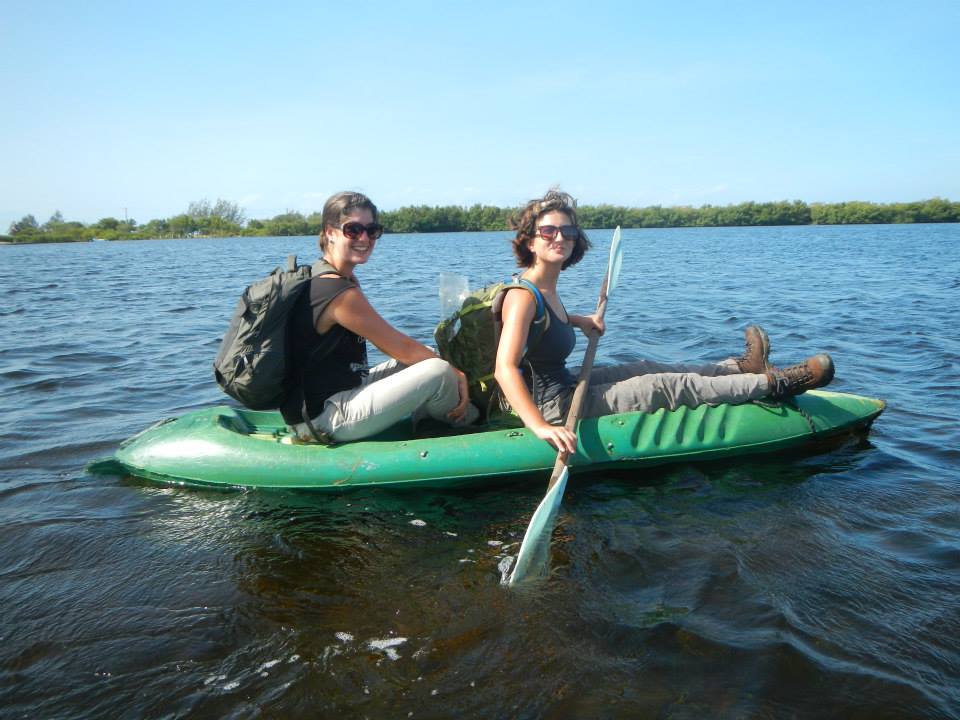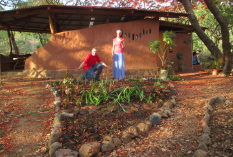If you’re looking to intern in South America, you’re probably not taking the position for the lucrative paycheck (unless you’ve managed to find a high-paying international internship, in which case please tell me what magic trick you used to find it). Still, even though you may not end up depositing anything into your savings account during your time abroad, there are plenty of other, non-monetary benefits that come from interning in a Latin American country.
Some of these advantages are obvious: learning a new language, for example, as well as the opportunity to expand your network and get firsthand experience in an international context. Just by living in another country and talking to locals, you’ll become more educated on global issues and current events that may not get much coverage in your home country. At the same time, you’ll gain a different perspective on your home country and culture, and become more confident in your own identity and values.
While these may seem apparent, there are a number of not-so-obvious advantages to interning in South America. The continent is a popular destination for travelers and backpackers making their way up from Tierra del Fuego – while this is a great way to see some of the region, there are some things you’ll have access to as a longer-term resident that you simply wouldn’t get from staying in a hostel for a few days. Here are just a few of the unexpected benefits you’ll get out of your internship in South America:
If patience is a virtue, you’ll become a saint
One common challenge for interns from English-speaking countries in Latin America is the process of adjusting to the different culture – not just socially, but professionally as well. Workplaces in Latin American countries may function in a way that’s very different from what you might be used to, particularly when it comes to little things like schedules, timeliness and whether meetings on the calendar actually take place when they’re supposed to – or ever. This has a lot to do with cultural attitudes toward time, prioritizing of interpersonal interactions and sometimes just big-city traffic, but it can be challenging to get used to, especially if you come from a culture where showing up half an hour late to a meeting or canceling at the last minute is seen as unforgivably rude.
While at first it can be very frustrating to deal with situations in which you feel like you don’t know what’s happening, learning to adapt to this new environment will actually end up being a major benefit for you down the road. Functioning in a chaotic, less-regimented professional context forces you to develop important skills like patience, flexibility and creative problem-solving – all of which will serve you well in the future, whether in line at the grocery store or in the workplace. People often worry about how to explain their time abroad to an interviewer or potential employer, but these “soft skills” are exactly the qualities many hiring managers look for, so don’t be afraid to talk them up.
This is a gradual process, so you may not even notice that it’s happening until you move back to your home country and don’t feel even mildly annoyed when your friend shows up 20 minutes late to a coffee date. One way to try to track your personal growth is to keep some kind of journal during your time abroad, and see how your perspectives and attitudes toward some cultural differences evolve from the moment you arrive until you leave.
Your future job applications will shine
You’ve likely heard all about how our globalized world is feeding the demand for global job candidates, but it’s impossible to stress enough just how attractive international experience is to many potential employers – especially if you have the language skills to go with it. So many companies across many different industries are looking to hire people that can – and already have – work beyond their own borders, whether that involves taking regular business trips to Beijing or hosting a weekly conference call with the satellite office in Dubai.
For people from the U.S. in particular, Spanish is a high-demand language, and speaking Spanish will make you more qualified for jobs, no matter where you’re applying. Never fear, Portuguese fans – Brazil’s status as South America’s biggest country and economy means it’s on the radar of many international companies and organizations, so having experience there will give you a boost in the eyes of managers looking to hire someone that isn’t afraid to falar português.
Even if you’re applying for a job that seems totally unrelated to the country where you interned, your international internship still helps you out. Your time spent abroad – and the fact that you were interning as opposed to just traveling – will help your application stand out from others that don’t have that international element. It’s up to you how you choose to present your international internship experience on your resume and in interviews, but no matter where it is on the page, it will RISE.
You’ll turn into a pro explorer
While your primary commitment will be to the responsibilities of your internship, chances are you’ll have a fair amount of free time outside of the office. Fortunately for you, South America is one of the best places in the world to have extra time!
 Intrepid or not, there’s always something new to explore!
Intrepid or not, there’s always something new to explore!Regardless of where you are on the continent, you’ll be able to find breathtaking natural wonders and unique cultural attractions just hours away – or even right in your city. From Bogotá to Buenos Aires, the continent’s capital cities have a wealth of cultural offerings: music, theater, arts, museums, festivals and world-class restaurants, just for starters.
Away from the cities is where the sights are really Instagram-worthy, though: you could be close to ancient Incan ruins, Patagonia’s famous ski mountains in, rolling vineyards, sparkling Caribbean beaches, snow-capped volcanoes or dense Amazonian rainforest. Taking advantage of your free time – and all those holidays – while interning in South America ensures your time abroad will be a balanced and worthwhile experience that you’ll be talking about for years to come.
You’ll get a lifetime membership to an international community
No matter where you intern, you’re going to have a chance to make friends with both locals and other foreigners. Ask anyone who has ever spent a significant period of time living in another country, and they can tell you: the friendships you make while abroad will last for years and span continents. Expat communities tend to be very supportive of new members, and there’s no better place to join an international community than South America, where most people are incredibly welcoming of foreigners – especially if you make an effort to learn the local language. If you live with a host family during your internship, you’ll likely become another member of the family, so be prepared to keep them updated on your life – and get plenty of life updates from them – long after you head home.
All the street food your hungry heart desires
This may not help your resumé, but it will make your taste buds oh-so-happy! Though Peru tends to hog most of the global culinary accolades (and deservedly so), every South American country has an enviably strong street food game. Whether your tastes lean more toward Venezuela’s arepas and mandocas, Brazilian pão de queijo and acarajé, Argentine choripan and empanadas or salteñas and choclo from the highlands of Bolivia, your host country will have plenty to make you salivate.
Of course, these are just a few entries on a practically endless list of reasons to intern abroad in South America. Convincing yourself of the benefits is the easy part, though – now you have to take on the near-impossible task of deciding which country is the best option for you!
Written by Natalie Southwick, intern abroad expert with a particular penchant for all things Latin America. Connect with her at @nsouthwick or LinkedIn.
Global Nomadic offers Professional Internships, Volunteer Projects and TEFL Programmes in 30 countries worldwide. Get your career kick-started today!












